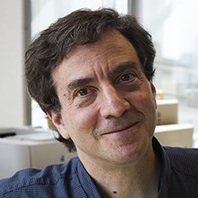Professor of Neurology, F.M. Kirby Neurobiology Center, Boston Children's Hospital
Many fascinating unanswered questions lie at the interface of fundamental cell biology and neuroscience. For example, how do motors control the distribution of organelles? How are organelles supplied and cleared when far from the nucleus? The neuron, because of its extraordinarily complex structure offers special challenges to general cell biological processes. Solving neurodegenerative disorders may depend on understanding how the neuron meets these challenges.
The Schwarz lab is focused on the cell biology of the neuron and seeks to understand how nerve cells work and keep their distant parts well-supplied and healthy. We do so with the expectation that understanding how the cell functions can give us insight into the pathology of neurological disorders when those functions fail. Moreover, much as the shape and style of a building is constrained and influenced by the properties of the building materials, so too is the architecture and circuitry of the brain dependent on how these cellular components operate.
The research interests of the Schwarz Lab include 1) axonal transport of organelles, particularly mitochondria, by kinesins and dynein; 2) the development and structural plasticity of synapses; and 3) the mechanisms that preserve the quality of axonal components. Our inquiries into these fundamental processes have brought us in contact with translational questions of neurodevelopmental disorders and neurodegenerative diseases. The etiology of Parkinson’s Disease and peripheral neuropathies have become a particular concern of our group.
Projects move back and forth between Drosophila melanogaster, mice, rats, and human cell lines as the scientific question demands. We approach each question through a combination of genetics, biochemistry, electrophysiology, cell biology, pharmacology, and imaging.

